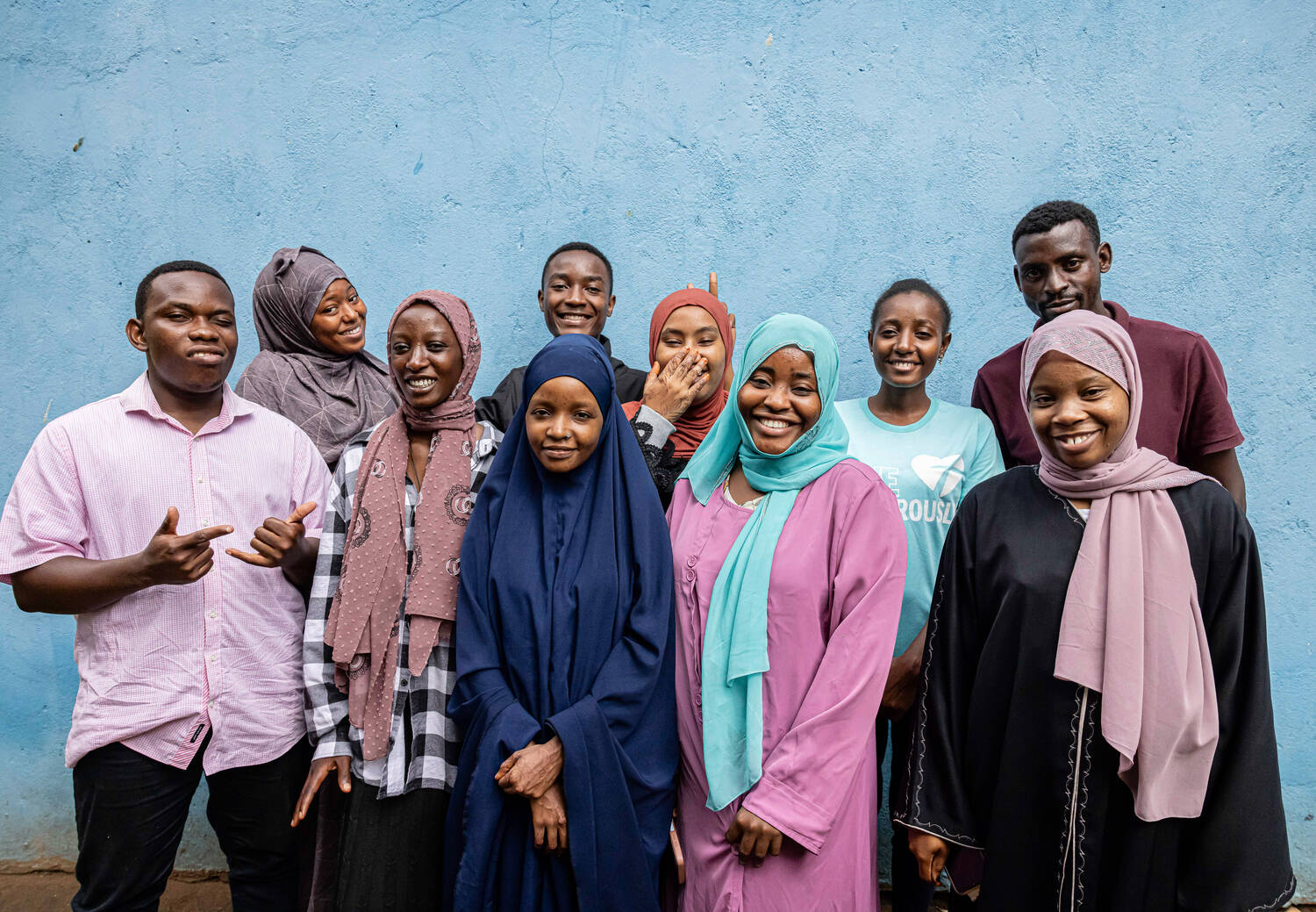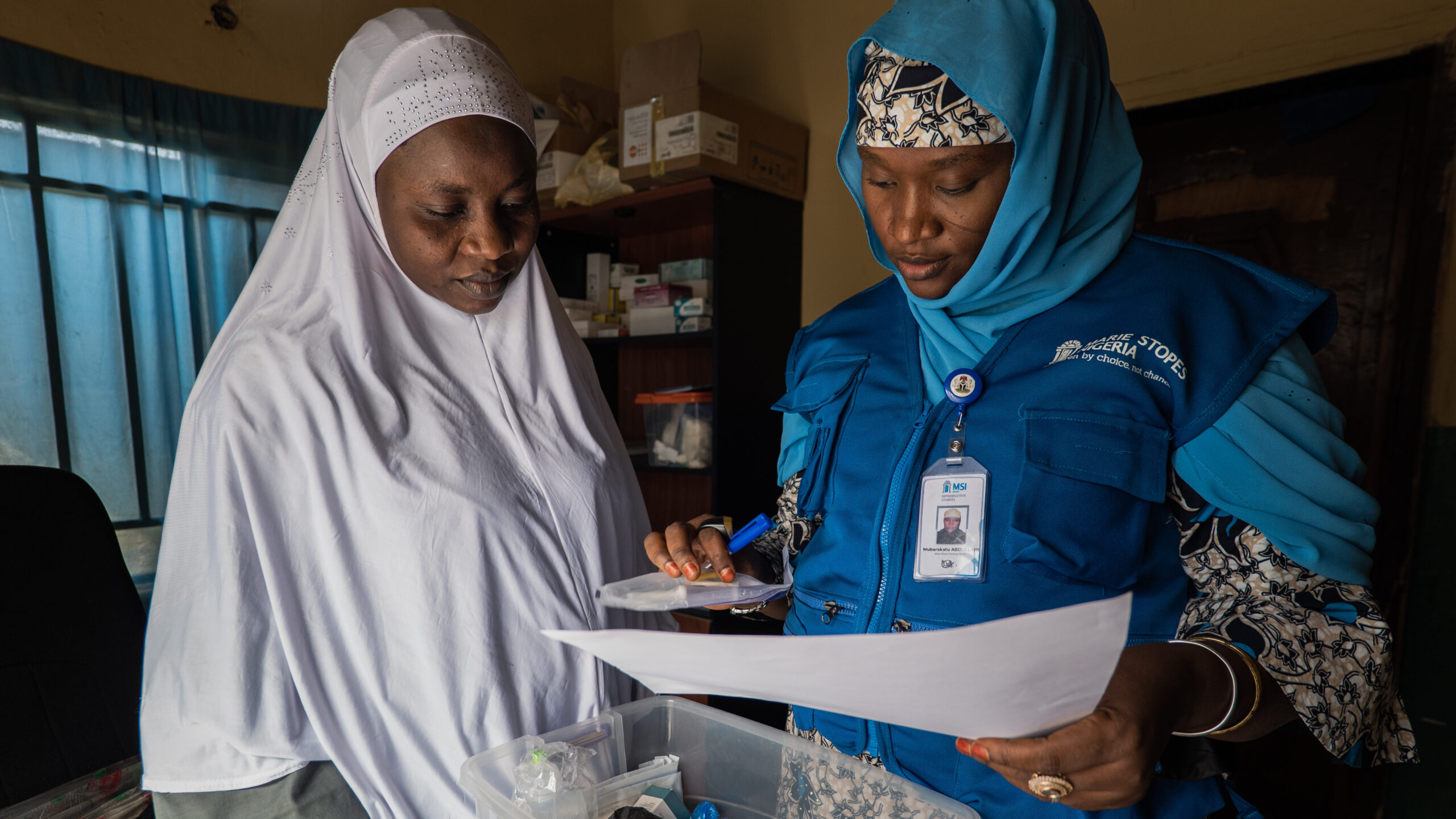In July, I was fortunate to see Dr Carole Sekimpi at Women Deliver in Kigali — Carole leads MSI’s work across several east-African countries and heads up our programme in Uganda. She insisted I visit the Uganda programme to see the progress they have made since my last visit in 2017. Three months later, that’s exactly what I did.
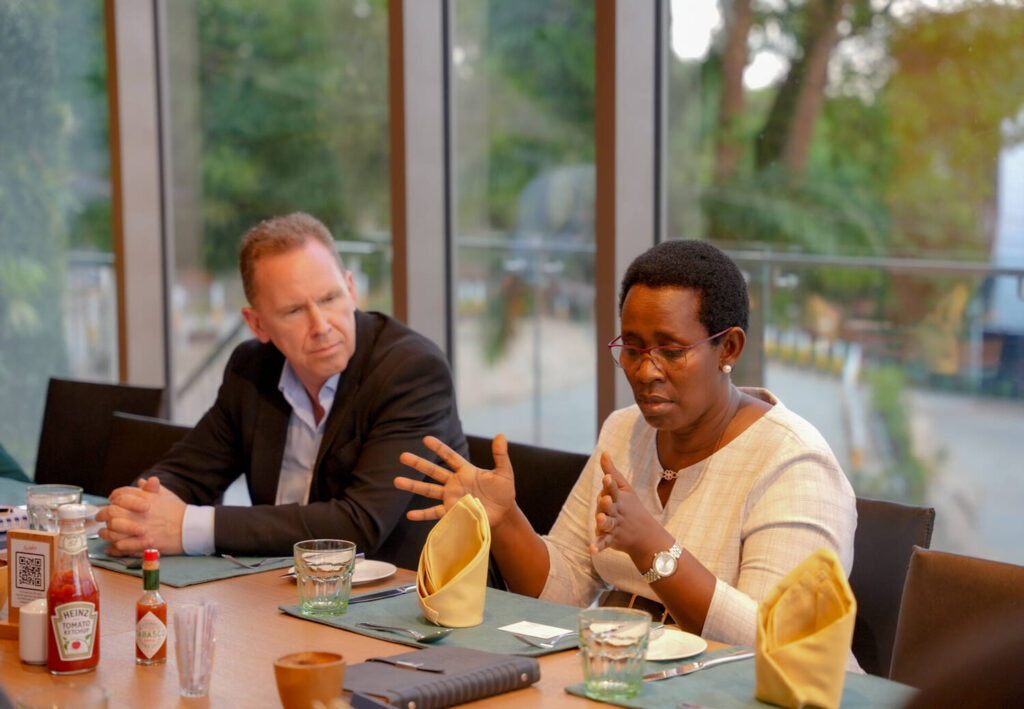
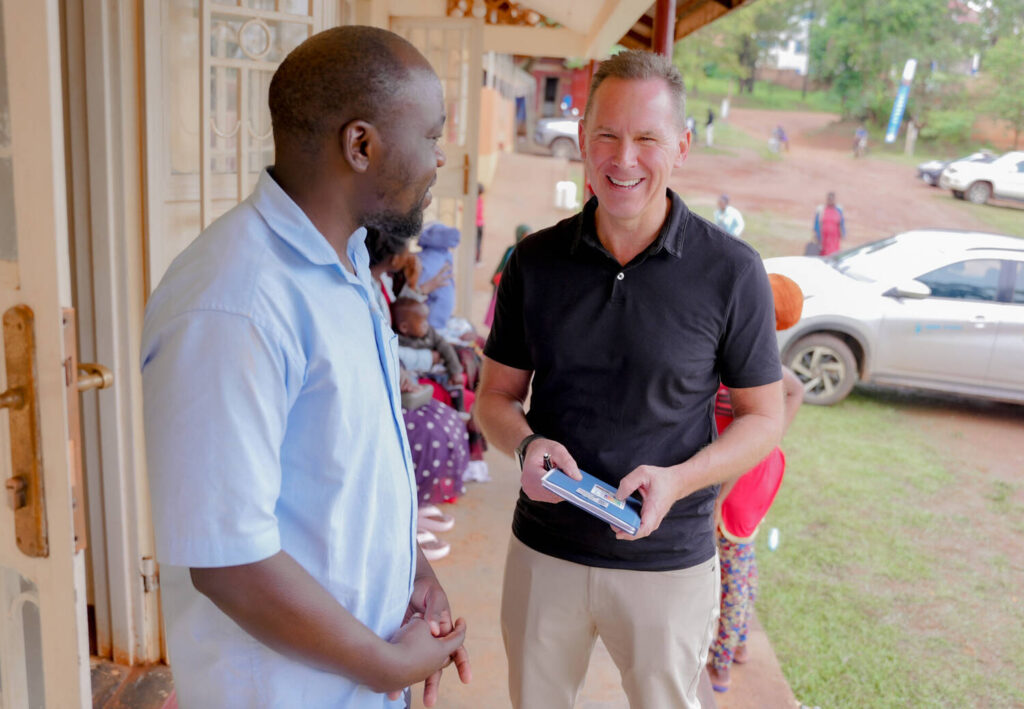
Progress through public sector support
I was blown away by my visit to Nsangi Health Centre III in the Wakiso District where MSI has transitioned from providing direct, in-facility support to lighter touch mentoring so the public sector providers can maintain high standards. Before MSI’s mentorship, the facility was serving an average of 20 contraceptive clients per month, and that’s now grown to 270 clients per month. This is no easy feat in a small facility with a single room for family planning, shared by around 50,000 people across 21 villages.
Here, I met Monica, Habiba and Prossy: three inspiring young women providers, who’ve received training from MSI and were extremely proud of the standard of care they could provide to their community.
Habiba shared with me that she was inspired to work in the public health system because of the poor care her late mother had received. She was motivated to make it better for everyone. And she saw it as her duty to train whoever replaces her in the future with the same skills and knowledge, so that high-quality practices are embedded in public health for the long-term.
The women also told me that they feel a great responsibility to provide contraceptive choice to clients, and how new written consent and confidentiality processes have helped protect both clients and staff when, from time to time, partners come to them upset at their wife or girlfriend’s choice to access contraception.
They sang the praises of the MSI team for training and supporting them and were extremely proud that their facility had now transitioned out of MSI’s supervision. I was impressed with their knowledge and dedicated attitudes.
The insights I gain from conversations like these are as valuable as they come. For me, Habiba embodies the idea that real change is possible, and it is the transfer of motivation and attitude, as much as knowledge, that makes all the difference. Weeks later, Habiba tracked me down on LinkedIn and messaged me to say how proud she was to share her work and that ‘we never forget our vows to love and serve’.
Seeing our Public Sector Support strategy in action reaffirmed for me the importance of putting the tools and expertise in the hands of the public health system to build truly sustainable access.
A memorable muddy day visiting MSI Uganda’s frontline services
Whenever I visit MSI’s frontline work, our mobile outreach services never fail to leave a lasting impression. It’s the best of what we do. And this trip was no different — in the afternoon, I found myself in a 4×4 driving up muddy tracks, arriving at the Nyanja Health Centre II in the Mukono district, which provides care to 24,000 people across 9 villages.
Here I met two community volunteers who are trusted and chosen by their peers to become health advocates; the pair are part of what we call Village Health Teams. It was striking how different the two were: one was a very young woman and the other was a man close to 70 years of age, both chosen by their communities to speak to very different demographics. They talk to their peers about contraception, break down stigma, and help to educate and inspire. They told me they’re so proud to be chosen by their own community, and that what they say is trusted.
That day, there were around 40 women and some men (fewer than normal due to the weather) who had walked up to 12 kilometres to access reproductive healthcare services. MSI staff counselled the women on a range of contraceptive methods so they could choose what they wanted, and meanwhile their children were able to get immunisations.
There’s no substitute for seeing this with your own eyes. I watched as our teams delivered a superb quality of care, supporting women and girls who have no other access to contraceptive choice.
One by one, we’re breaking cycles of poverty and opening opportunities for women and girls’ futures, giving them a chance to change the course of their lives. This is generational impact — what’s more sustainable than that?
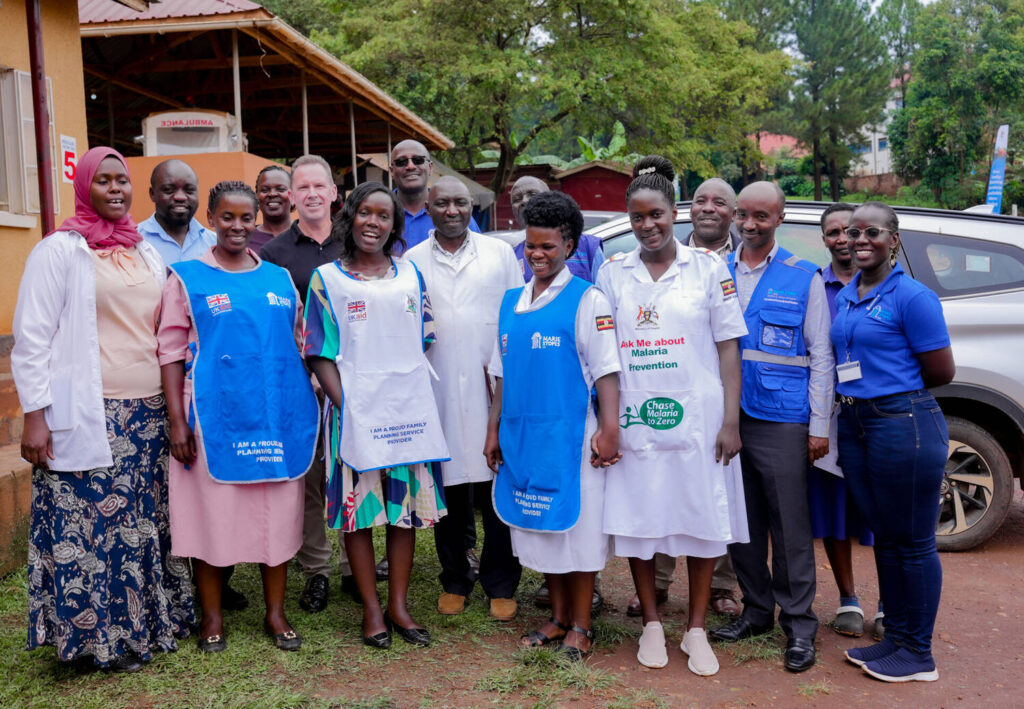
Six years since I last visited: The good and the bad
Since I last visited our Uganda programme in 2017, our teams have served more than 5.5 million people — that equates to almost 4 million fewer unintended pregnancies and 11,000 women’s lives saved. Amazing work!
The difference made in the last six years is significant. The health system is stronger due to investment and partnerships: critically, the maternal mortality rate continues to fall, down to 189 from a previous rate of 336 per 100,000 live births in 2016 — starkly better than some surrounding east African countries. I also witnessed the strength of MSI’s relationship with the Ministry of Health, and enjoyed meeting the Permanent Secretary, Dr Diana Atwine, who was very supportive of reproductive healthcare and spoke passionately of keeping young women in education and reducing maternal deaths.
But they’re experiencing some frustrations, too. The country has not yet recovered from the terrible impact of COVID-19, which shuttered schools for two years, and teenage pregnancies have skyrocketed, alongside instances of domestic abuse, rape, and incest. Today and every day in Uganda, around 1000 teenage girls become pregnant. So the need for our services has never been greater, particularly for adolescents and in rural communities.
Sadly, that coincides with unprecedented funding uncertainty in the reproductive health sector. The £10.2 million budget that fuelled MSI Uganda’s programme in 2023 will drop to £7.5 million in the year ahead. It goes without saying that our ability to provide outreach and health system strengthening services in Uganda will be affected. Fewer teams mean fewer women’s lives transformed.
We will continue to show up, showcase this brilliant work, and make the case for increased funding, while also scaling up our self-sustaining work, like providing contraception affordably and expansively through the private sector, and expanding private maternity provision.
It’s obvious that reproductive healthcare fundamentally changes lives, and it’s remarkably inexpensive — we can provide a woman with quality contraception for just 1.1p per day, while giving her choice and agency.
When it comes to transforming contraceptive access, seeing really is believing, and MSI Uganda is truly leading the way!
A personal thank you to everyone in Uganda who I met, from the district health workers to our clients. You took the time to grace me with your personal stories, to share with me the impact that MSI has had on your life, and to challenge and inspire me. I won’t forget it.
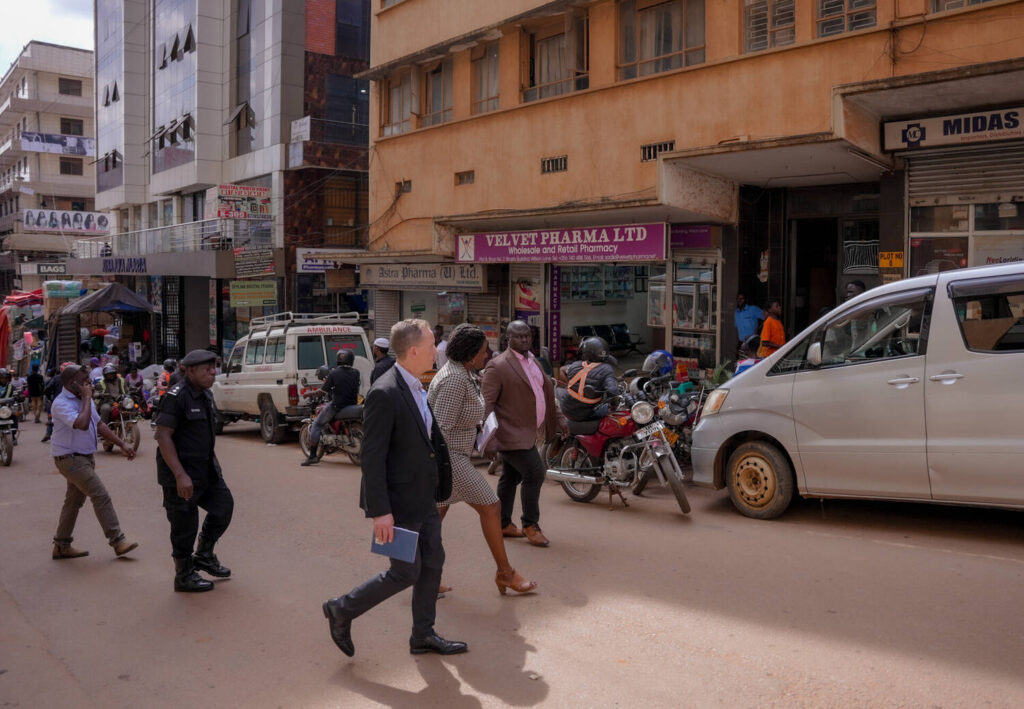
More facts about the sites I visited:
Nsangi HCIII in Kyengera, Wakiso District
- The facility serves 21 villages with an estimated population of 50,000.
- The facility enrolled in public sector strengthening mentorship in 2020 under the RISE project, and within 2 years transitioned to indirect support.
- 5 health workers with 1 district trainer benefitted from mentorship; they are all ‘Level 1 providers’ in family planning services. Before the mentorship, the facility was serving an average of 20 family planning clients per month, which has now grown to an average of 270 family planning clients per month.
- This growth has been attributed to the strengthened capacity of providers to offer quality services and support with proper documentation and reporting. It’s also been supported by improved stock management with reduced stock-outs and expiries of supplies, and the strengthened capacity of Village Health Teams to educate at the community level.
Nyanja HCII in Goma Division, Mukono District
- The facility serves 9 villages with an estimated population of 24,000.
- It has a total of 8 staff members with 1 Nursing Officer, 2 Midwives, 2 Nursing Assistants, 2 Enrolled Nurses, and 1 Support Staff.
- MSI Uganda’s Luwero outreach teams visit the facility quarterly.
- The MSI team provides quality family planning services and works with government health workers at the facility to transfer clinical skills during any given outreach visit (where an average of 60 clients per visit are served).







